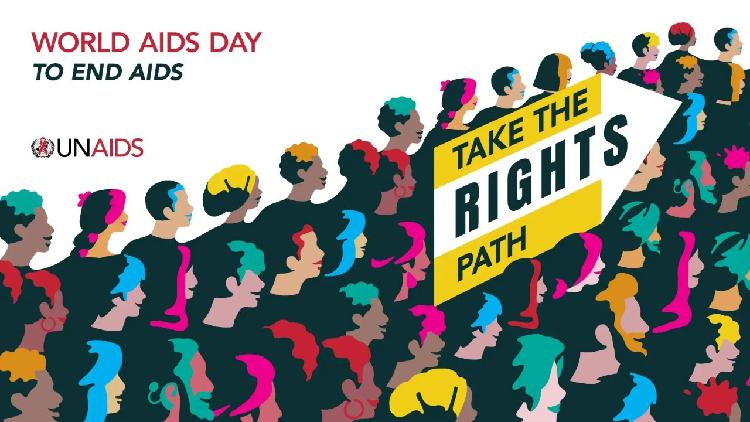World AIDS Day: "Take the Rights Path"
World AIDS Day, observed every year on December 1 since 1988, serves as a worldwide effort to promote awareness regarding the AIDS pandemic resulting from HIV transmission.

This year's theme, "Take the rights path: My health, my right!" calls on global leaders and individuals to advocate for the right to health by tackling the inequalities that hinder the effort to end AIDS.
A recent report from the Joint United Nations Program on HIV/AIDS, released on November 26, indicates that approximately 39.9 million individuals worldwide were living with HIV in 2023, an increase of 900,000 compared to the previous year. Despite progress in treatment options, 9.3 million people still do not have access to essential life-saving treatments, and new HIV infections are on the rise in at least 28 countries.
China, as a significant contributor to the global response against HIV/AIDS, has been instrumental in shaping UNAIDS since its establishment in 1996, as emphasized by Winnie Byanyima, UNAIDS executive director, during an interview with Xinhua.
The National Disease Control and Prevention Administration reports that China has made remarkable strides in limiting HIV transmission. The transmission of HIV through blood transfusions has nearly been eradicated, and mother-to-child and injection drug-related transmissions have been effectively controlled.
Data from the Chinese Center for Disease Control and Prevention indicates that by the end of June 2024, there were 1.329 million people living with HIV in China, while 474,000 deaths were reported. The number of reported survivors continues to grow annually, and the rate of new infections is decreasing. Overall, the AIDS epidemic in China remains at a relatively low prevalence level.
To help prevent HIV infection, consider the following tips:
1. The public should actively seek to educate themselves about HIV/AIDS prevention.
2. Disease prevention and control institutions, along with medical facilities at all levels, can provide HIV testing services.
3. Using condoms during sexual activity is recommended.
4. If engaging in unprotected sex, it is crucial to get tested for HIV and consult with your local disease prevention and control institution or medical facility as soon as possible, ideally within 24 hours and no later than 72 hours.
5. If diagnosed with HIV, take necessary precautions to prevent transmission to others and seek prompt treatment.
Max Fischer for TROIB News
Discover more Science and Technology news updates in TROIB Sci-Tech












